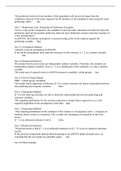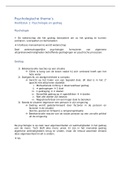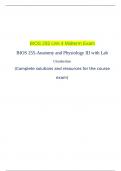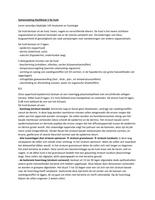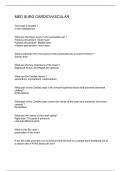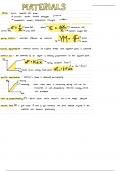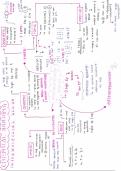Exam (elaborations)
ISYE6414 Final exam 2022
- Course
- ISYE 6414 (ISYE6414)
- Institution
- Georgia Institute Of Technology
The prediction interval of one member of the population will always be larger than the confidence interval of the mean response for all members of the population when using the same predicting values. - Answer- true See 1.7 Regression Line: Estimation & Prediction Examples "Just to wrap up the comp...
[Show more]
